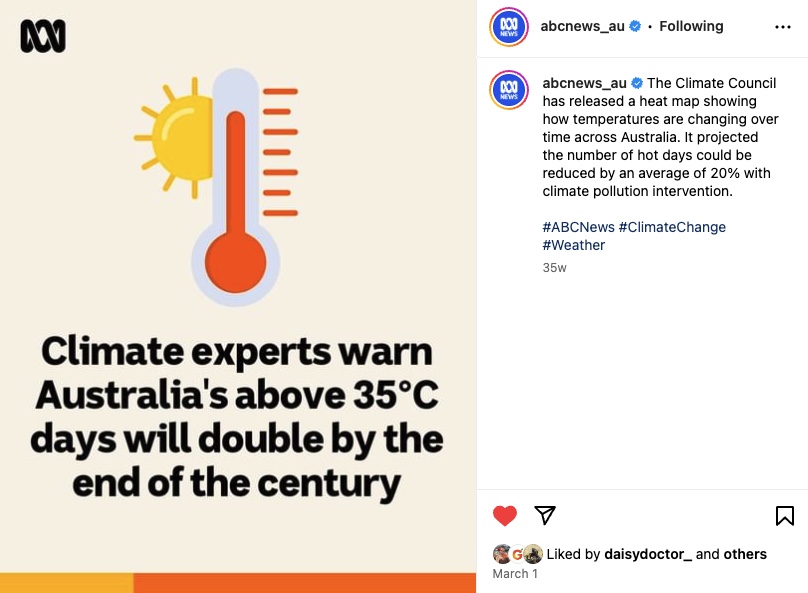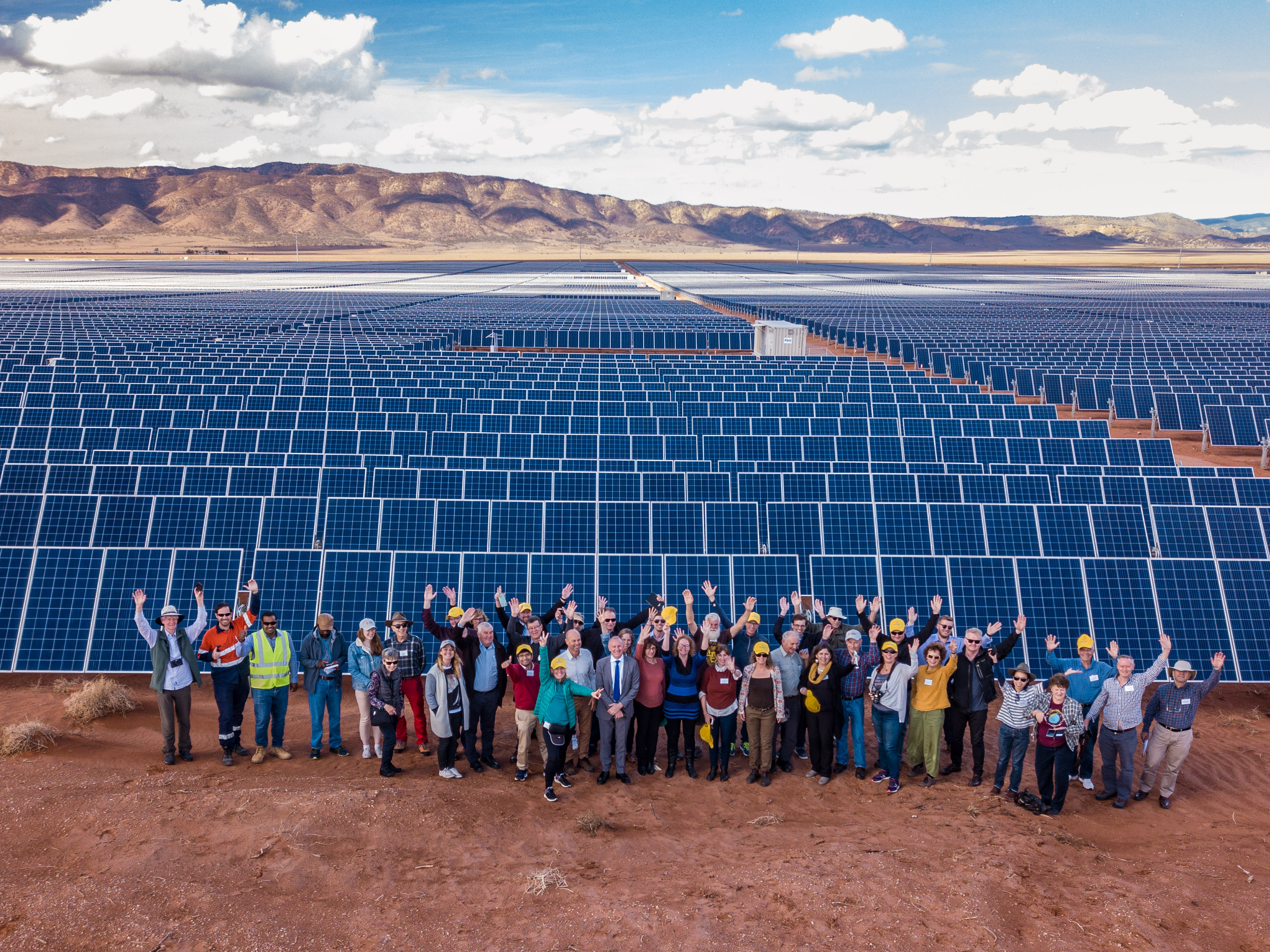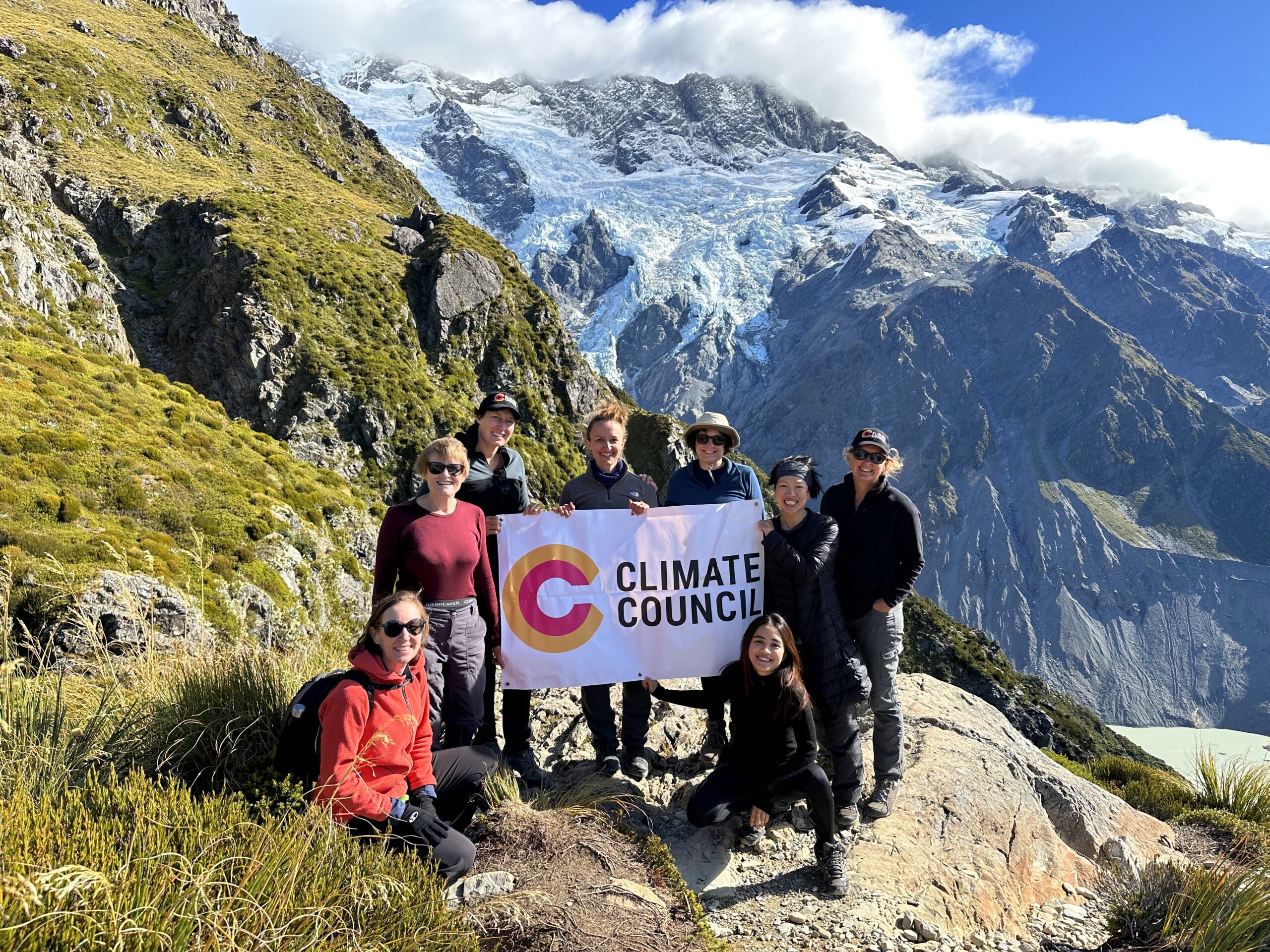On September 19th, 2013, the Abbott Government abolished the Climate Commission. On September 24th, 2013 the independent Climate Council was launched thanks to the biggest crowd-funding campaign of its time: over 16,000 Australians pitched in over $1.1 million dollars in just 10 days to bring us to life.
Fast forward to today, and hundreds of thousands more have joined Australia’s leading independent, evidence-based voice on climate science, solutions and impact. Together, we have shifted national attitudes and catalysed climate action at every level of government – and we’re just getting started.
Let’s take a look back at some of the highlights we’ve achieved together.
What have we been up to lately?
Climate Council exists to accelerate cuts to climate pollution, fast. Here’s how we’ve been doing just that in 2024.
Cleaner transport laws: Australia has some of the most polluting vehicles in the world. After helping secure a commitment from the Federal Government in 2023 to design a national fuel efficiency standard, Climate Council’s campaign for cleaner transport made a significant contribution towards new laws that passed the Federal Parliament in May 2024 that will more than halve how much climate pollution new cars and vans produce before 2030.
Stronger national environment laws: We have campaigned relentlessly for Australia’s national environmental laws to be overhauled so they embed climate change. Climate Council’s analysis, that more than 740 fossil fuel projects have been waved through since national environment laws were first legislated, has been regularly cited by politicians, media and climate movement allies as evidence of the urgent need for reform.
Getting Australia off gas: The idea that gas is a “transition fuel” is a furphy. To counter this myth, Climate Council has run a national campaign to convince Aussies to ditch their harmful gas cooktops, and we developed an evidence-based energy plan, Powering Past Gas, to counter the gas industry’s relentless push to maintain our reliance on their polluting fossil fuel.
Our Greatest Hits
The top 10 moments from Australia’s climate change-maker.
Making renewables mainstream
We’ve been popularising clean energy since the beginning. For over ten years, we’ve pushed hard to popularise clean energy, which now makes up about 40 percent of the electricity in Australia’s main energy grid. Our tireless activity across dozens of influential reports, tens of thousands of media stories and millions of online impressions has shaped the national conversation about Australia’s renewables-powered future.
| Our impact The video above, showcasing the popularity of a solar farm in Broken Hill, was viewed over a million times across our social media platforms. It even got shared by ABC and Channel 10! |
Sharing powerful climate stories
In 2015, the Climate Media Centre (CMC) was established to connect journalists with local and compelling stories about the people and places affected by climate change, as well as the inspirational experts who are working to fix our biggest challenge.
The CMC has helped shape climate narratives with farmers, sportspeople, health professionals, First Nations and Pacifika peoples and so many more, ensuring first-hand experiences of climate change are understood.
| Our impact The CMC has supported more than 1500 spokespeople across all corners of Australia and secured tens of thousands of pieces of media coverage. |
Fighting back against misinformation
Climate Council is well established as Australia’s trusted source of information about climate science, impacts and solutions. We have always stood up against climate action delayers and climate change deniers and hold us back from shifting to a cleaner, safer future.
| Our impact In one of many, many, many examples of Climate Council taking up the fight against misinformation, when Australian officials secretly lobbied UNESCO to remove mentions of the Great Barrier Reef from a report about the impacts of climate change on one of our great natural wonders, we exposed the original document and shone a media spotlight on this cover-up. |
Developing trusted climate voices
Climate Council formed Emergency Leaders for Climate Action (ELCA) in 2019, in anticipation of a devastating fire season. Initially, the warnings of ELCA members were ignored by political leaders, however the most damaging fires in Australia’s history (known as Black Summer) soon saw ELCA convene Australia’s first bushfire and climate change summit, where a national response to both crises was coordinated.
ELCA has been a prominent advocate on behalf of fire and emergency services ever since, shaping the national conversation about climate change and extreme weather while ensuring emergency services are equipped to protect Australian communities.
| Our impact The 2020 National Bushfire and Climate Summit brought together hundreds of participants to share their experiences and formulate recommendations to address the worsening risk of devastating bushfires fuelled by climate change. Since then, ELCA has gone from strength to strength, with Australia’s Climate Change and Energy Minister, Chris Bowen, meeting with ELCA members as his very first act as minister in 2022. |
Smart, strategic and solutions-focussed reports
Climate Council has produced over 170 peer-reviewed reports to drive faster cuts to climate pollution and help Australia realise a once-in-a-lifetime opportunity and become one of the world’s leading clean economies. Perhaps most notably:
- Aim High, Go Fast was launched in 2021, Climate Council’s science-backed vision for what Australia’s best efforts to address climate change could look like;
- Mission Zero was launched in 2022, laying out why Australia’s emissions must embark on a steep downward trajectory towards a 75 percent cut below 2005 levels by the end of the decade, and net zero by 2035; and
- Seize the Decade was launched in 2024, laying out how proven technologies can electrify the nation and cut climate pollution in line with our Mission Zero findings to ensure millions of Australians enjoy the benefits of a cleaner, safer future.
| Our impact Aim High, Go Fast formed the basis of our communications strategy in the lead up to the 2022 Federal Election. Following a historic change of government, this election is commonly referred to the “climate election” after five independents candidates who campaigned for strong climate action won five seats in electorates which were seen as strongholds of the previous government – a government which had overseen almost a decade of inaction on climate change. |
Leading the push to drive down industrial pollution
Reforming the “Safeguard Mechanism”, the federal policy which regulates emissions from Australia’s biggest industrial polluters, was the first major opportunity to make meaningful cuts to climate pollution at the national level in a decade.
Back in 2022 and 2023, we played a leading role in the successful national campaign to force big industrial emitters (including coal, oil and gas facilities) to start pulling their weight and cut emissions in line with federal emissions reduction goals.
| Our impact Climate Council met with a wide cross-section of politicians across the Federal Parliament to provide reliable, evidence-based information while advocating for a stronger Safeguard Mechanism. Several of our policy recommendations, including capping total emissions to ensure new projects can’t drive up national emissions and making new gas facilities accountable for their onsite emissions from day one, were included in the reforms which passed Federal Parliament. |
On the ground as the Paris Agreement is finalised
The historic global agreement at the UN climate talks in Paris was a watershed moment in the global effort to tackle climate change.
Climate Council CEO, Amanda McKenzie, and Climate Councillors, Professors Tim Flannery and Lesley Hughes, were on the ground throughout the talks.
| Our impact Global climate talks are highly complex. Climate Council leaders were on hand at this historic moment of global momentum, translating national pledges, corporate commitments and climate science into digestible information in front of the world’s media. |
Connecting extreme weather events to fossil fuels
As extreme weather worsens, our role in reminding the media, political decision-makers and the public that these unnatural disasters are caused by our continued use of fossil fuels becomes increasingly urgent.
During Black Summer in 2019, Emergency Leaders for Climate Action were instrumental in consistently linking the devastating fires back to climate change – a connection previously considered blasphemous by Australian media and political leaders. Then, during 2022’s record floods, Climate Council was there on the ground tying these unprecedented weather events back to climate change and demanding better preparedness.
| Our impact The Climate Council and the Climate Media Centre’s persistent media work has been instrumental in shaping the national narrative about climate change and extreme weather. As a result, the conversations we are having about climate change and extreme weather today regularly make the connection between more frequent and intense unnatural disasters and the ongoing burning of coal, oil and gas. |
Informing online audiences with new climate tools
As our collective attention has shifted online in recent years, so too has Climate Council’s delivery of climate information. Since 2022, we have launched the Climate Risk Map and Heat Map tools, interactive maps which demonstrate how vulnerable locations are to bushfires, extreme heat, flooding, coastal inundation and more.
Tens of thousands of people across the country have used these tools to better understand the risks posed by climate change to their homes and the local community.

| Our impact On the day the Climate Risk Map launched, both the Deputy Prime Minister and Finance Minister were directly questioned about our findings during their media interviews on the election campaign trail. Neither provided an adequate response. |
Hosting Australia’s first ever Climate Security Summit
Climate Council convened Australia’s first National Climate Security Summit in 2015, a gathering of Australia’s top defence and national security experts.
At the same time, we released a powerful new report which found Australia’s defence forces were under pressure from the heightened need for humanitarian assistance in response to unnatural disasters.
| Our impact Following the coverage of this event, Admiral (Ret) Chris Barrie went on to form the Australian Security Leaders Climate Group and the Australian Government eventually included climate change in its white paper on national security in 2016. |

GET THE FACTS
Subscribe to the Climate Council today to stay in-the-know on the latest climate news, research and ways you can take action to cut climate pollution.
For information on why we collect and how we will use or disclose the personal information you have provided in this email subscription form, please see our Email Subscription Form Collection Notice here. Our Privacy Policy is also available here.

